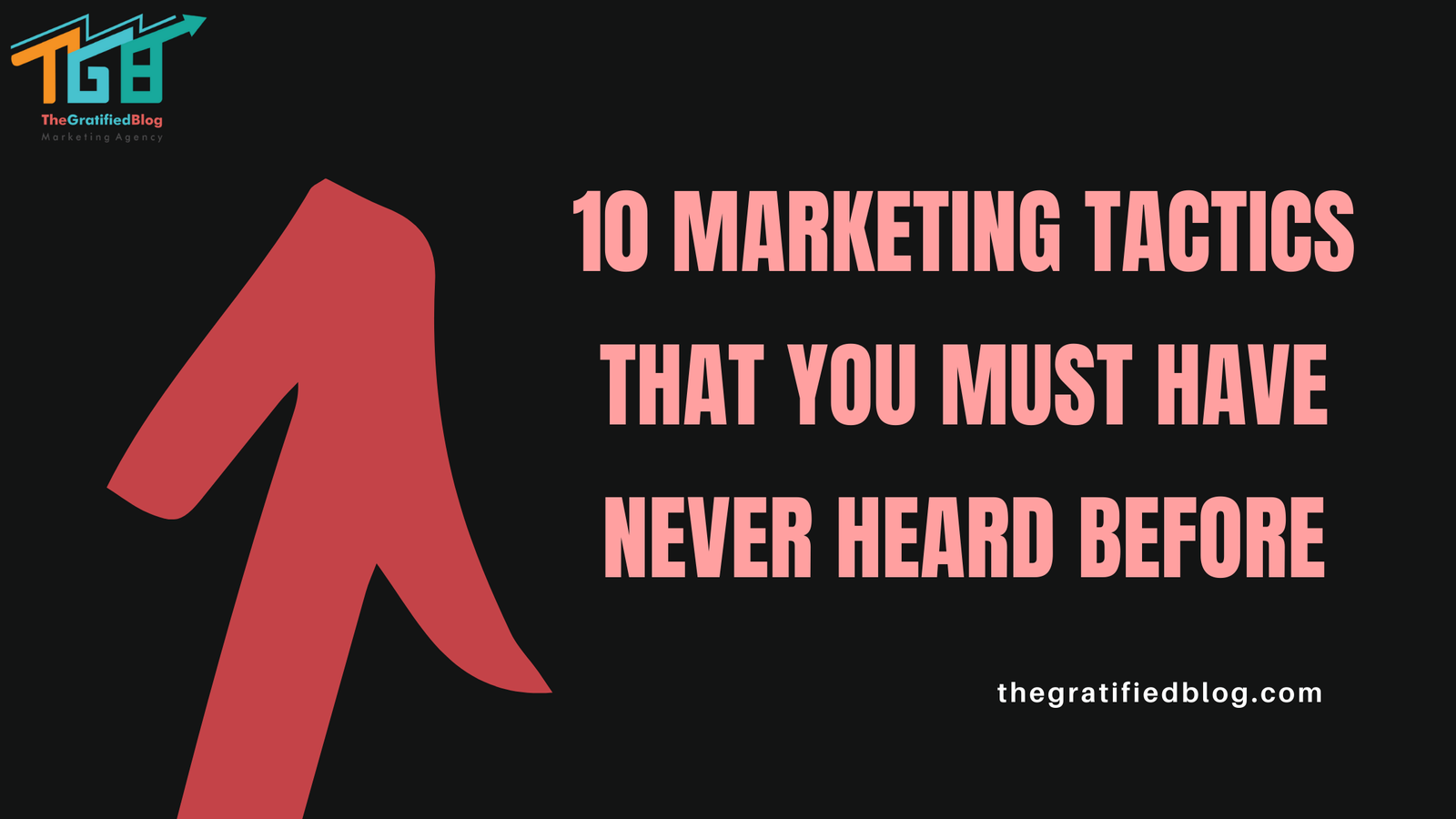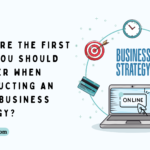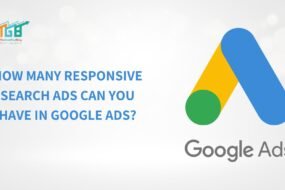
In today’s competitive business landscape, marketing has become crucial to any successful venture. It’s not enough to have a great product or service.
You must ensure your target audience knows about it and is convinced to choose it over the competition. This is where marketing tactics come into play.
In this article, we will explore the concept of marketing tactics and how they can significantly impact your overall marketing strategy to achieve better results and boost your business.
What Are Marketing Tactics?
Marketing tactics refer to businesses’ specific strategies and techniques to promote their products or services and reach their target audience. These methods aim to attract and engage potential customers, ultimately driving sales and brand awareness.
Common marketing tactics include social media advertising, email campaigns, search engine optimization (SEO), content marketing, influencer partnerships, and traditional advertising channels like TV and print.
Successful marketing tactics involve understanding consumer behaviour, market trends, and competitor analysis. Marketers often use a combination of tactics to create a comprehensive and cohesive marketing plan that aligns with the company’s overall goals.
Adapting to changing consumer preferences and emerging technologies is crucial to staying effective in the dynamic landscape of marketing tactics.
10 Effective Marketing Tactics
Here are 10 practical and different marketing tactics to boost your strategy:
Content Marketing

Content marketing is a strategic approach to reach and connect with your target audience by delivering top-notch and valuable content.
This diverse content includes blog posts, articles, videos, infographics, and more. The primary goal is to create material that genuinely resonates with your audience, sparking their interest and attention.
To succeed, content creators must emphasize the importance of offering helpful information and solving real problems their audience faces. By addressing their pain points and offering practical solutions, content marketing establishes trust and credibility with the target audience.
Moreover, engaging the audience is a crucial aspect of content marketing. Interaction can be encouraged through compelling storytelling, interactive elements, or seeking feedback to foster a sense of community and build a loyal following.
A well-executed content marketing strategy can establish a strong brand identity, position the business as an authority in its field, and drive organic traffic to the website.
By consistently providing valuable content, businesses can nurture relationships with their audience and convert them into loyal customers, leading to long-term success.
Social Media Marketing

Social media marketing is a form of digital marketing that utilizes social media platforms to promote products, services, or brands and engage with potential customers.
It involves creating and sharing content on social media channels like Facebook, Instagram, Twitter, LinkedIn, YouTube, Pinterest, and others to achieve various marketing objectives.
Key aspects of social media marketing include:
Audience Targeting
Identifying and defining the target audience based on demographics, interests, behaviours, and other factors to deliver tailored content.
Social Media Advertising
Using paid advertising features offered by social media platforms to reach a wider audience, increase visibility, and drive specific actions (e.g., website visits, app downloads, conversions).
Community Management
Building and nurturing an online community by engaging with followers, responding to comments and messages, and fostering a positive brand image.
Social Media Analytics
Monitor and analyze the performance of social media campaigns, measuring key metrics like engagement, reach, click-through rates, and conversion rates.
Influencer Marketing

Collaborate with influencers or industry experts with a significant following and influence in your niche. Their endorsement of your brand or products can reach a wider audience and build trust.
These influencers have established credibility and authenticity with their followers, making their recommendations highly valuable. By tapping into their network, you can access a targeted audience more likely to engage with your offerings.
Careful selection of influencers is crucial; choose those whose values align with your brand to maintain authenticity. A well-executed influencer campaign can boost brand awareness, drive traffic to your website, and ultimately increase sales.
Influencers can create engaging content about your products, showcasing them in a relatable manner. This approach makes it easier for potential customers to visualize how your offerings can meet their needs.
The power of social proof cannot be underestimated, and influencer marketing provides a potent form of it. Positive reviews and testimonials from influencers can sway hesitant consumers to purchase.
Email Marketing

Email Marketing is a powerful strategy to build and maintain an email list comprising interested prospects and loyal customers. Through email campaigns, businesses can nurture leads, cultivating a solid relationship with potential clients.
Personalized offers and tailored content keep the audience engaged and interested in the brand. By regularly updating subscribers about the latest products or services, companies can keep their audience informed and increase the chances of conversions.
The key to successful email marketing is providing valuable and relevant content that resonates with the recipients. Understanding the needs and preferences of the target audience enables businesses to craft compelling messages that drive action.
Email marketing allows for segmentation, ensuring that the right messages reach the right people, further increasing the effectiveness of the campaigns.
Consistency and timing are vital aspects of email marketing. Regularly scheduled emails help maintain engagement, while strategic timing enhances the chances of opening and reading emails.
However, avoiding overwhelming subscribers with excessive emails is crucial, as this may lead to disengagement and unsubscribes.
Search Engine Optimization (SEO)

Search Engine Optimization (SEO) is a crucial strategy to enhance your online presence. By optimizing your website and content, you can significantly boost your search engine rankings.
A key aspect of SEO involves incorporating relevant keywords strategically throughout your content, enabling search engines to understand and index your pages effectively.
Creating valuable backlinks from reputable websites is essential. Backlinks act as endorsements for your content, signalling to search engines that your site is trustworthy and valuable. High-quality backlinks can significantly impact your website’s authority and, consequently, its ranking in search results.
However, SEO is not just about technical aspects; it also revolves around providing an outstanding user experience. User-friendly websites with intuitive navigation and engaging content rank higher as they attract and retain visitors.
Search engines prioritize delivering the best results to users, and websites that fulfil this criterion are rewarded with better visibility.
Regularly updating your website with fresh and relevant content is another SEO best practice. Fresh content indicates your website is active and up-to-date, encouraging search engines to crawl and index your pages more frequently. This can lead to increased organic visibility and higher rankings.
Paid Advertising

Invest in paid advertising on platforms like Google Ads, Facebook Ads, or Instagram Ads. These platforms allow you to target specific demographics and interests, ensuring your ads reach the right audience.
With Google Ads, you can bid on relevant keywords and have your website appear at the top of search results, increasing visibility and potential clicks. Facebook and Instagram Ads provide advanced targeting options, enabling you to reach users based on age, location, interests, and behaviour.
Paid advertising offers measurable results, allowing you to track the performance of your campaigns in real time. You can analyze data, such as click-through rates, conversions, and return on investment (ROI), to optimize your ad strategies and allocate your budget effectively.
This level of insight allows you to make data-driven decisions, refining your advertising efforts for maximum impact.
Paid advertising campaigns can be scaled quickly based on your business needs, allowing flexibility and adaptability in your marketing approach.
Whether you’re looking to promote a new product, increase website traffic, or boost sales, paid advertising offers the means to achieve your objectives.
Referral Marketing

Encourage satisfied customers to refer their friends and family to your products or services. Offer incentives or discounts for successful referrals to boost word-of-mouth marketing.
Referral marketing is a powerful strategy that capitalizes on the trust and satisfaction of existing customers to expand your customer base.
When customers are pleased with their experience, they naturally share their positive impressions with those close to them, leading to a higher chance of conversion for potential new customers.
By implementing a referral program, you not only tap into the existing network of your satisfied customers but also create a virtuous cycle of loyalty and advocacy.
The personal touch of a friend or family member’s recommendation carries significant weight, as people are likelier to trust their inner circle’s opinions over traditional advertising.
Offering incentives or discounts for successful referrals provides an added motivation for customers to actively promote your business.
This helps drive more leads and rewards loyal customers for their valuable advocacy, fostering a sense of appreciation and strengthening customer relationships.
Interactive Content

Interactive content is a powerful tool to captivate and involve your audience effectively. With features like quizzes, polls, surveys, and contests, you can create an engaging online experience.
Not only does it entertain your audience, it also serves as a means to gather valuable insights and feedback from them.
Quizzes provide an interactive way for users to test their knowledge and discover new information. Polls enable you to gauge opinions and preferences on various topics, fostering a sense of inclusivity and participation.
Surveys allow you to delve deeper into your audience’s needs and preferences, aiding in fine-tuning your products or services.
Running contests can ignite excitement and encourage active participation, creating a sense of community around your brand. Interactive content increases the time spent on your platform and encourages social sharing, expanding your reach organically.
By leveraging interactive content effectively, businesses and content creators can better understand their target audience, leading to more personalized and tailored experiences.
This, in turn, enhances customer satisfaction and loyalty, contributing to long-term success. So, don’t miss the opportunity to engage, learn, and grow with interactive content!
Video Marketing

Incorporate video content into your marketing strategy. Videos have high engagement rates and can effectively showcase your products, tell stories, or provide tutorials.
With the growing popularity of social media and online platforms, video has become essential for businesses to captivate their audience. Whether it’s a short product demonstration, a compelling brand story, or a step-by-step tutorial, videos can convey messages in a way that resonates with viewers.
The visual and auditory appeal of videos enables businesses to connect more emotionally with their target audience, leading to increased brand awareness and customer loyalty. Additionally, videos can be easily shared across various platforms, enhancing their reach and potential impact.
Incorporating video marketing allows you to showcase the unique features and benefits of your products or services more engagingly and memorably, helping potential customers make informed decisions.
You can also boost your search engine rankings by leveraging video content in your marketing strategy. Search engines like Google often prioritize video content, which can improve your website’s visibility and attract more organic traffic.
Partnerships And Collaborations

Team up with complementary businesses or organizations to cross-promote each other’s offerings. Partnering with others can help you reach new audiences and build credibility.
You can leverage each other’s strengths and expand your market presence by joining forces with like-minded enterprises. Collaborative efforts enable sharing resources, expertise, and customer bases, leading to increased efficiency and profitability.
Furthermore, partnering with established brands or organizations can provide instant credibility and trust for your business. The association with reputable entities enhances your reputation in the eyes of potential customers, fostering a sense of reliability and quality.
Cross-promotional campaigns allow both parties to tap into previously untapped markets, gaining exposure to a broader range of consumers. This synergy can lead to mutual growth and a sustainable competitive advantage.
Examples Of Marketing Tactics
Pay-Per-Click (PPC) Advertising
Place ads on search engines or social media platforms and pay only when someone clicks on the ad. This highly targeted form of marketing allows businesses to reach their desired audience precisely, making it cost-effective and efficient.
Advertisers can optimise their campaigns by bidding on relevant keywords or demographics to drive quality traffic and increase conversions. PPC’s real-time tracking and analytics provide valuable insights, enabling constant refinement for maximum ROI and an impactful online presence.
Affiliate Marketing
Partnering with affiliates who promote your products or services, earning a commission for each sale they generate.
This cost-effective strategy leverages a vast network of affiliates, expanding your reach to diverse audiences. By offering attractive commissions, businesses can motivate affiliates to actively market their offerings, increasing brand exposure and higher sales.
The success of affiliate marketing lies in fostering strong relationships with affiliates and providing them with the necessary tools and support to maximize their promotional efforts.
Influencer Marketing
Influencer marketing is a marketing strategy that focuses on collaborating with influential individuals, known as influencers, to promote products, services, or brands to their target audience. Influencers typically have a large and engaged following on social media platforms such as Instagram, YouTube, TikTok, Twitter, and blogs.
Influencer marketing offers brands a powerful way to reach and engage with their target audience authentically, leveraging the trust and credibility that influencers have built with their followers. By implementing a well-planned and strategic influencer marketing approach, brands can drive brand awareness, expand their reach, and ultimately drive business results.
Unconventional and low-budget marketing tactics that aim to create a buzz and surprise the audience, often in unexpected places.
This unique approach leverages creativity and imagination to catch people off guard, sparking curiosity and engagement.
By deviating from traditional advertising methods, guerilla marketing seeks to leave a lasting impression, making it an effective strategy for small businesses and startups with limited resources.
From eye-catching street art to flash mobs in busy city centres, guerilla marketing’s ingenuity knows no bounds in capturing the attention of potential customers.
Product Sampling
Product sampling is a powerful marketing strategy businesses employ to entice potential customers into trying their products at no cost.
By offering free samples, companies aim to eliminate any reluctance to try something new and increase the chances of customers purchasing.
This approach creates brand awareness and helps build a positive perception of the product’s quality. With the lure of free samples, businesses can effectively spark interest and drive higher sales in the long run.
Referral Marketing
Referral Marketing is a powerful strategy that taps into the potential of existing customers to widen a company’s customer base.
By encouraging these satisfied clients to refer their friends and family, businesses can leverage word-of-mouth marketing to boost their reach. Incentives, such as discounts, rewards, or exclusive offers, motivate customers to participate in the referral program.
This approach helps companies acquire new customers and fosters loyalty among the existing ones, creating a win-win situation for both parties involved.
Webinars And Online Events
Hosting online presentations, workshops, or seminars to educate and engage with the target audience. In today’s digital age, webinars have become a powerful tool for businesses and individuals to connect with their audience regardless of geographical boundaries.
Through interactive sessions, experts can share valuable insights, answer questions, and build meaningful relationships with participants, fostering a sense of community and knowledge-sharing.
With user-friendly platforms and advanced technology, hosting webinars has never been more accessible, making it an indispensable strategy for those seeking to enhance their online presence and stay connected in a dynamic virtual landscape.
Tips Of Marketing Tactics
Marketing tactics are strategic activities that promote a brand and its products to the target audience. They are high-level concepts that direct content creation and intentional marketing funnel experiences. Here are some tips for marketing tactics:
- Align with your marketing strategy and goals: Marketing tactics should be defined by the company’s strategy and goals. Use tactics that align with your marketing strategy and goals.
- Focus on your target audience: Marketing tactics should target the specific audience you want to reach.
- Use a mix of tactics: There are thousands of marketing tactics that can be employed. Use a mix of tactics that can boost the ROI of your business.
- Categorize tactics by marketing strategy: Categorize tactics by marketing strategy, such as content marketing, email marketing, and advertising.
- Measure the effectiveness of tactics: Measure the effectiveness of tactics to determine which ones work best for driving new sales.
- Personalize marketing messages: Personalize marketing messages to make them more effective.
- Invest in original research: Investing in original research can generate links from reputable websites and yield thousands of subscribers.
- Let data drive your creativity: Use data to drive creative marketing messages.
- Update your website: Keep it up-to-date to ensure it is user-friendly and easy to navigate.
- Engage with customers on social media: Engage with customers on social media to build relationships and increase brand loyalty.
- Use AI marketing tools: Use AI marketing tools to optimize ad spending towards leads most likely to turn into paying customers.
Types Of Marketing Tactics
Marketing tactics encompass various strategies and techniques to promote products, services, or brands and achieve marketing objectives. Here are various types of marketing tactics:
Digital Marketing Tactics:
- Search Engine Optimization (SEO)
- Pay-Per-Click Advertising (PPC)
- Content Marketing
- Email Marketing
- Social Media Marketing
- Influencer Marketing
- Affiliate Marketing
- Online Display Advertising
- Mobile Marketing
Traditional Marketing Tactics:
- Print Advertising (Newspapers, Magazines, Flyers)
- Television Advertising
- Radio Advertising
- Direct Mail Marketing
- Outdoor Advertising (Billboards, Posters)
- Telemarketing
- Event Marketing (Trade Shows, Sponsorships, Experiential Marketing)
Content Marketing Tactics:
- Blogging
- Video Marketing
- Podcasting
- Infographic Marketing
- E-books and Whitepapers
- Webinars and Online Courses
- Case Studies and Customer Testimonials
Social Media Marketing Tactics:
- Social Media Posts and Updates
- Social Media Contests and Giveaways
- Social Media Advertising (Facebook Ads, Instagram Ads, LinkedIn Ads)
- Influencer Partnerships
- Social Listening and Engagement
- Email Marketing Tactics:
- Newsletters and Email Campaigns
- Automated Email Sequences (Welcome Emails, Abandoned Cart Emails, Follow-up Emails)
- Personalization and Segmentation
- A/B Testing of Subject Lines and Content
Search Engine Marketing (SEM) Tactics:
- Keyword Research and Optimization
- Ad Copywriting and Ad Extensions
- Landing Page Optimization
- Bid Management and Budgeting
- Remarketing and Retargeting Campaigns
Influencer Marketing Tactics:
- Influencer Identification and Outreach
- Influencer Partnerships and Collaborations
- Sponsored Content Creation
- Affiliate Links and Discount Codes
- Performance Tracking and Measurement
Offline Marketing Tactics:
- Networking and Relationship Building
- Community Involvement and Sponsorships
- Word-of-Mouth Marketing
- Guerrilla Marketing Tactics
- Referral Programs and Loyalty Programs
Event Marketing Tactics:
- Trade Show Exhibitions
- Conferences and Seminars
- Product Launch Events
- Sponsorship Opportunities
- Networking Events and Meetups
By combining these marketing tactics and aligning them with overall marketing objectives and target audience preferences, businesses can create effective marketing campaigns that drive awareness, engagement, and conversions.
Final Words
No matter your marketing tactics, none can promise you great results. You’ll always need to do proper research before executing any tactic.
For example, you cannot pay any random Youtuber or Instagram influencer to promote your product. You’ll need to review their niche if it’s related to your product, their follower base, etc.
Hence, do proper research, focus on your content, focus on value rather than product, and choose the appropriate marketing tactics.
If you do all of these well, you can lead your business to the next level. Furthermore, if you have any issues regarding the above points, do let us know in the comment section below.








One reply on “Effective Marketing Tactics: Boost Your Strategy”
Excelente post. Muchas gracias Saludos